|
Save the Cord Foundation and WellSky are proud to welcome Dr. Paul Orchard (University of Minnesota) and the family of Lyla Edgington as our featured speakers for the next edition of Share the Science on Tuesday, December 19th at 2pm US Eastern Time / 11am US Pacific Time. RECORDING NOW AVAILABLE Join us to hear Dr. Orchard and Lyla's family to discuss how Lyla was successfully treated for Hurler Syndrome (MPS Type 1) using a cord blood transplant. Share the Science is a free webinar series focused on the cord blood industry and the latest research in this field. As always, we invite both health professionals and the general public to join us for this unique online educational series. Learn more about this exciting educational series here. Hope for treatment of genetic diseases like Hurler Syndrome?Cord blood has been used for more than 30 years. Many people know it as an alternative or even superior choice for stem cell transplants to treat many forms of cancer including leukemia, lymphoma, etc. However, cord blood has also shown tremendous potential in the treatment of certain genetic diseases, such as Hurler Syndrome (MPS Type 1). On April 4, 2016, at seven months old, Lyla Rose Edgington was diagnosed at Phoenix Children’s Hospital with a rare, progressive genetic disorder, Hurler syndrome. Hurler Syndrome is a progressive genetic disease. If you don’t treat it, it will gradually cause severe physical and mental damage. Lyla’s parents knew this and this is why timing was so crucial in her case. Her doctors said she needed a stem cell transplant and that cord blood would give her the best chances at overcoming this life-threatening genetic disorder. They were referred to Dr. Paul Orchard at the University of Minnesota who explained that transplants for MPS patients have greatly improved over the last several years. It was a race against the clock as the disease was constantly working against them, deteriorating brain cells. Luckily, a match was found and it was a perfect 6 out of 6 match! The transplant date was set for July 25th, 2016. Nearly seven years after receiving a successful cord blood stem cell transplant, Lyla and her parents want to spread awareness about the benefits of public cord blood donation. Join us for this inspirational and educational LIVE session featuring Dr. Paul Orchard and Lyla's parents! Together, they will help us to discover the potential of this valuable medical resource and open our eyes to possible new applications to treat genetic diseases with cord blood. SHARE THE SCIENCE with Dr. Paul Orchard University of Minnesota Medical Director of the Inherited Metabolic and Storage Disease Program and a Professor in the Department of Pediatrics, Division of Blood and Marrow Transplant & Cellular Therapy and family of Lyla Edgington Cord Blood Transplant Recipient for Hurler Syndrome "Cord Blood for Hurler Syndrome (MPS Type 1)" Free webinar. Open to the public. Tuesday, December 19th 2pm US Eastern Time / 11am US Pacific Time RECORDING NOW AVAILABLE About the speakers
We wish to thank Dr. Paul Orchard and the family of Lyla Edgington for volunteering their time to speak on
Share the Science and sharing their valuable insight on the use of cord blood transplants in the treatment of certain genetic disorders such as Hurler Syndrome. We also wish to also thank our generous sponsor and partner for this event, WellSky Health, who continue to support cord blood education through our “Share the Science” series. Save the Cord Foundation and WellSky are proud to welcome Dr. Koen van Besien as our featured speaker for the next edition of Share the Science on Tuesday, March 29th at 2pm US Eastern Time / 11am US Pacific Time. Join us to hear Dr. Koen van Besien from Seidman Cancer Center at University Hospital (Cleveland, Ohio) discuss innovations in cord blood transplants, including haplo-cord transplants for HIV, leukemia and more. RECORDING AVAILABLE. Click to view via the Share the Science Archive. Share the Science is a free webinar series focused on the cord blood industry and the latest research in this field. As always, we invite both health professionals and the general public to join us for this unique online educational series. Learn more about this exciting educational series here. The Enduring Promise of Cord Blood: |
| Dr. Koen van Besien Blood and Marrow Transplant Division Chief, Seidman Cancer Center at University Hospital With an established reputation for clinical research and care, Dr. van Besien has made numerous contributions to the field of cellular therapy and stem cell transplantation. Most recently, he has focused on methods to extend the use of transplantation to more patients in need. His group has recently reported the first successful transplant for a patient with HIV and leukemia using a haplo-cord graft - a unique procedure developed by his team. The patient remains free of HIV and leukemia more than four years after transplant. |
Share the Science and sharing his valuable insight
on the use of haplo-cord blood transplants in the treatment of HIV, leukemia and more.
We also wish to also thank our generous sponsor and partner for this event,
WellSky Health, who continue to support cord blood
education through our “Share the Science” series.
Share the Science: What is best stem cell source for children with AML? Ask Dr. Heather Stefanski
2/13/2023
Recording now available in the Share the Science Archive.
Treating children with AML:
What is the best source of stem cells?
Relapse and Graft-versus-Host Disease (GvHD) are both potential risks for pediatric patients post transplant. Both can be debilitating or life-threatening to the child. Transplant teams work daily to balance these risks with the risk of the cancer itself. Multi-center studies provide these medical teams with much needed observations from real world use of various stem cell sources in transplant. Analysis of these observations is critical to the fight against cancer and efforts to find a cure.
For this reason, we are very pleased to welcome Dr. Heather Stefanski from NMDP BeTheMatch who will discuss in detail a recent multi-center study comparing stem cell sources. Presenting data from "The influence of stem cell source on transplant outcomes for pediatric patients with acute myeloid leukemia" (published by Blood Advances), Dr. Stefanski will review outcomes of more than 300 patients receiving stem cell transplants from cord blood, matched unrelated donors, sibling donors and more. She will discuss the advantages and disadvantages of each and show the overall conclusions of this multi-center study.
Join us on February 28th for this fascinating, in-depth discussion led by a recognized expert in the field of stem cell transplants, Dr. Heather Stefanski. Free and open to all, this webinar is highly recommended for healthcare professionals, transplant teams and those working in cancer research. Likewise, we encourage OBGYNs, nurses, midwives and others who work with expectant parents to watch this webinar so that they can learn how cord blood stem cells are used on a daily basis in the treatment leukemia, particularly in children.
with
Dr. Heather Stefanski
Senior Vice President of Medical Services
for Be The Match / National Marrow Donor Program
"The Influence of Umbilical Cord Blood on
Treatment for Acute Myeloid Leukemia"
Free webinar. Open to the public.
Tuesday, February 28th 2pm US Eastern Time / 11am US Pacific Time
View the recording now in the Share the Science Archive.
Additional resources
- Ebook - Cord Blood Transplant: https://network.bethematchclinical.org/transplant-centers/cord-blood-transplant/
- Cord Blood Practice Guidelines: https://network.bethematchclinical.org/transplant-centers/cord-blood-practice-guidelines/
- Cord Blood Consultation: https://network.bethematchclinical.org/transplant-centers/search-and-testing/search-services/cord-blood-consultation/
- HCT Graft Source Selection - Cord Blood: https://network.bethematchclinical.org/education/education-catalog/hct-graft-source-selection--cord-blood/
- Webinar on Graft Source Selection: https://www2.network.bethematchclinical.org/l/566592/2021-04-06/hz32mn?_ga=2.161300285.1078025001.1686580602-284608465
About the speaker
| Heather Stefanski, MD, PhD Senior Vice President of Medical Services for Be The Match / National Marrow Donor Program Heather Stefanski, MD, PhD, understands the unique challenges transplant centers face. Before joining the National Marrow Donor Program® (NMDP)/Be The Match® as the Senior Vice President of Medical Services, she spent 27 years treating patients at the University of Minnesota (U of M) Division of Pediatric Blood and Marrow Transplant and Cellular Therapy. |
Share the Science and sharing her valuable insight
on the influence of cord blood stem cells in the treatment of AML in pediatric patients.
We also wish to also thank our generous sponsor and partner for this event,
WellSky Health, who continue to support cord blood
education through our “Share the Science” series.
Author
Write something about yourself. No need to be fancy, just an overview.
Archives
December 2023
March 2023
February 2023
August 2022
June 2022
April 2022
December 2021
July 2021
June 2021
May 2021
January 2021
October 2020
September 2020
August 2020
June 2020
May 2020
March 2020
October 2019
August 2019
May 2019
April 2019
March 2019
February 2019
November 2018
August 2018
January 2018
October 2017
September 2017
June 2017
May 2017
April 2017
March 2017
February 2017
January 2017
December 2016
November 2016
October 2016
September 2016
August 2016
June 2016
March 2016
January 2016
December 2015
November 2015

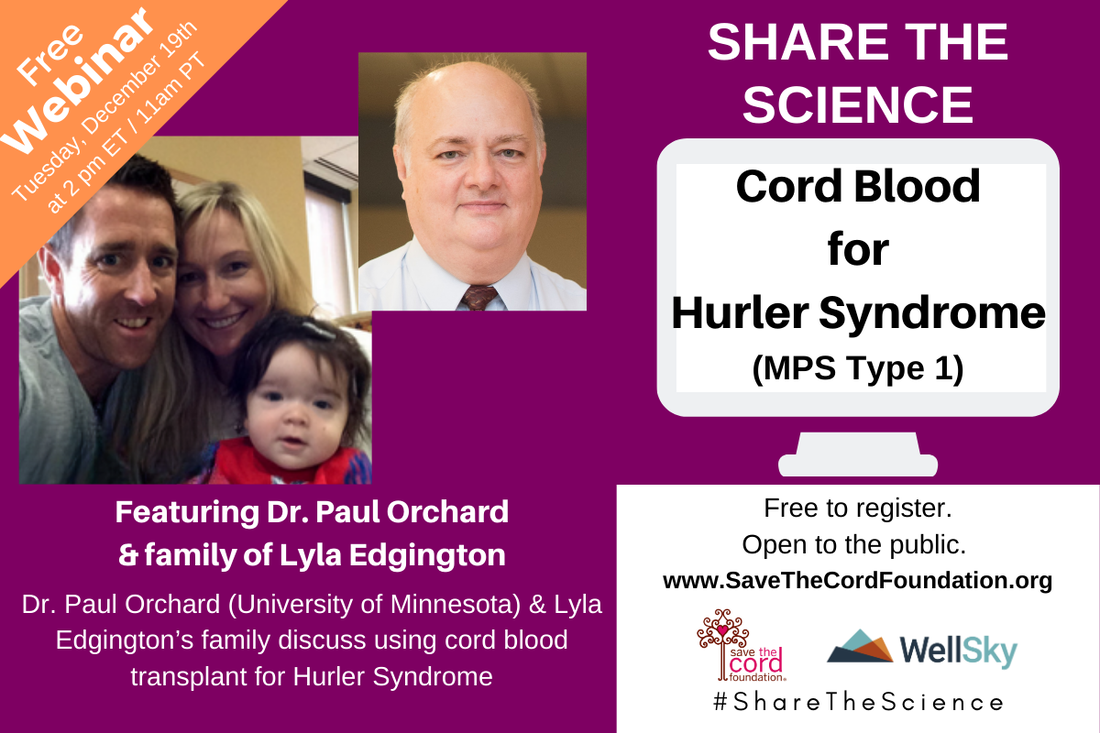
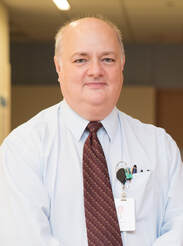
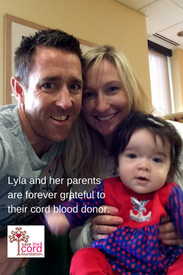

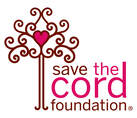
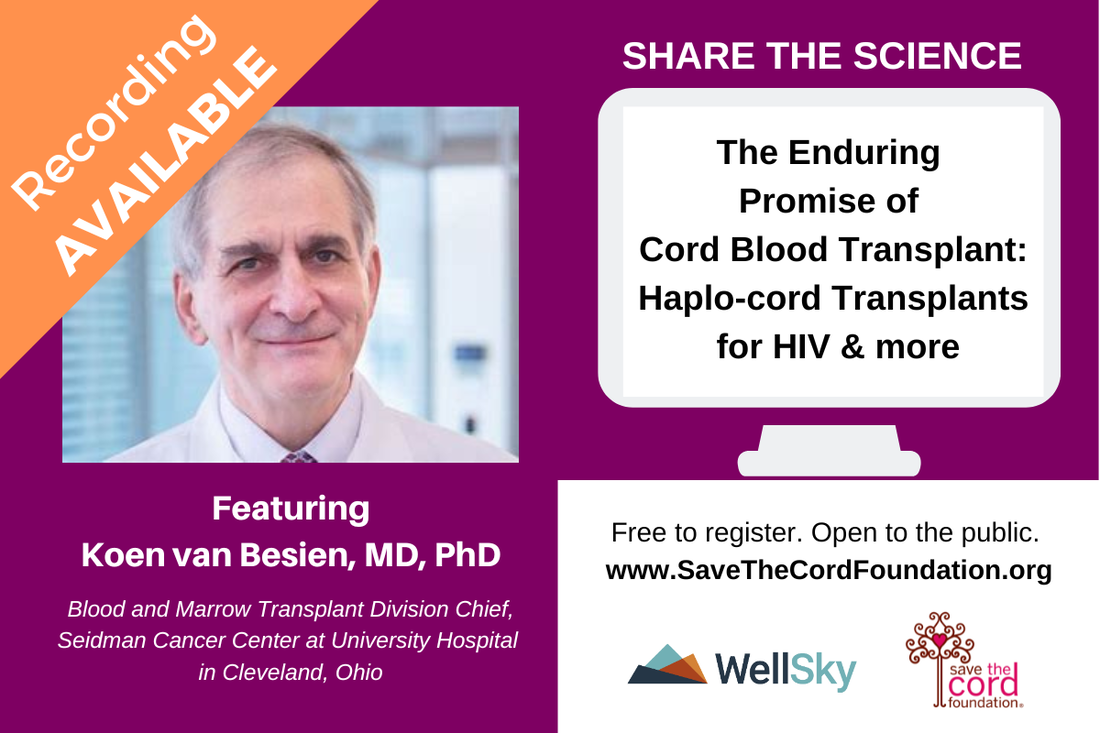


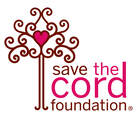
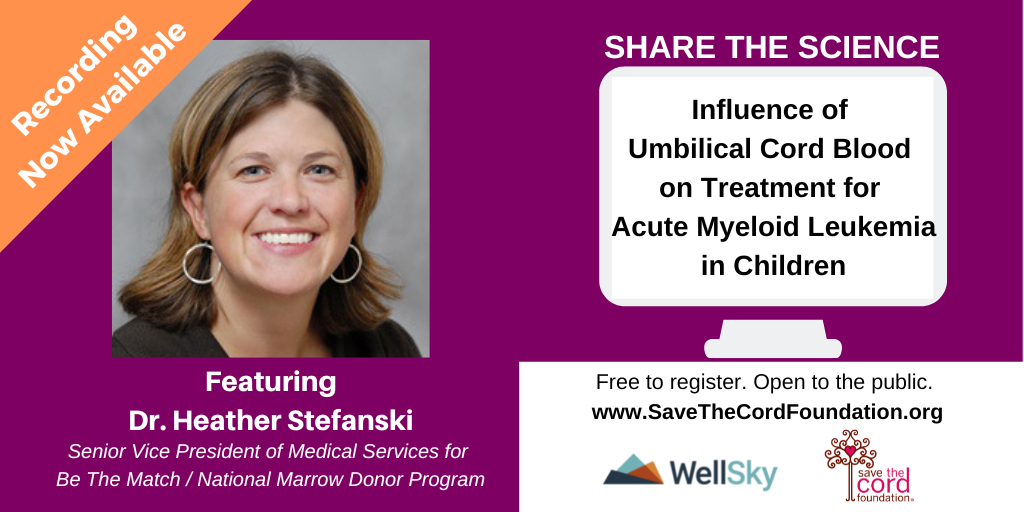
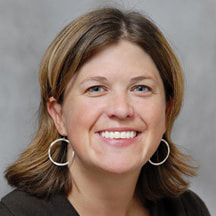
 RSS Feed
RSS Feed


